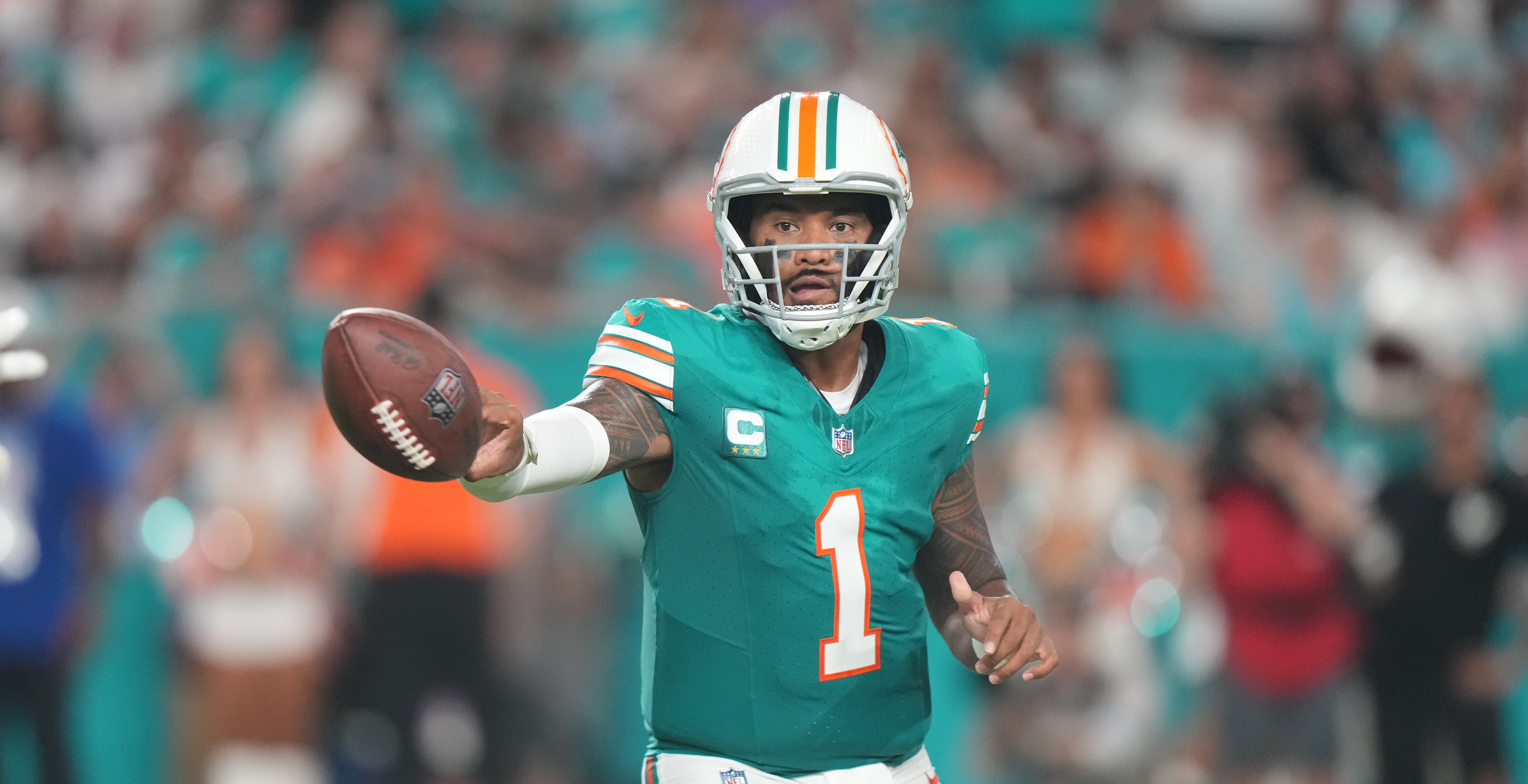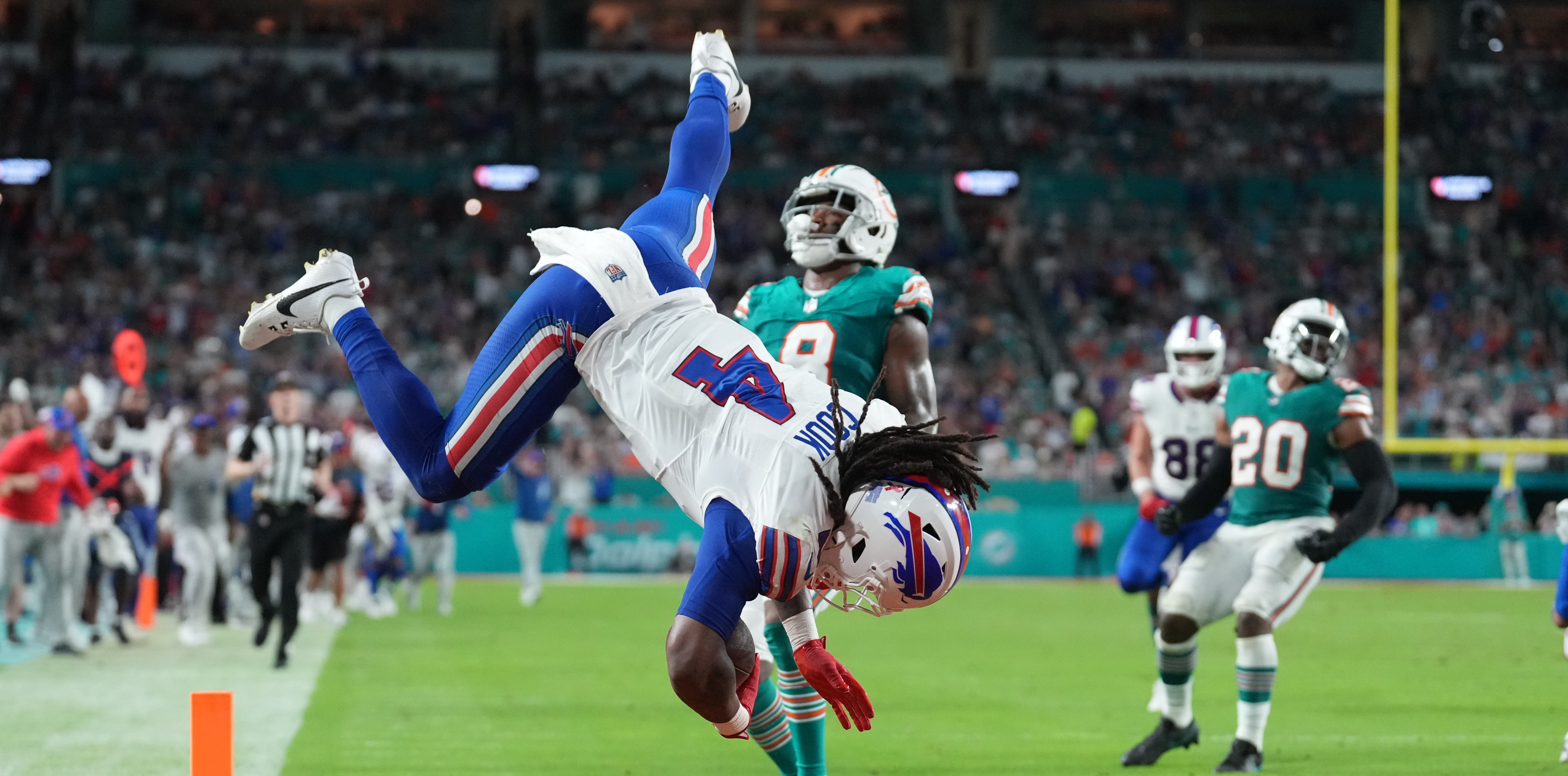Broward Health Medical Center’s chief of neurosurgery and football fan Dr. Christopher Roberts says he’s had multiple patients with concussions similar to the quarterback’s. But he explains looks can be deceiving. NBC6’s Cherney Amhara reports.
Tua Tagovailoa is now dealing with the third diagnosed concussion of his NFL career, all of them coming in the last three seasons.
And there are now questions about his future — both short-term and long-term.
Watch NBC6 free wherever you are
The Miami Dolphins quarterback was hurt in his team’s 31-10 loss to the Buffalo Bills on Thursday night, sustaining the injury on a play where he collided into Bills defensive back Damar Hamlin. Tagovailoa, who was rushing successfully for a first down, initiated the contact by lowering his shoulder into Hamlin instead of sliding as many quarterbacks do on a scramble.
Players from both teams immediately began gesturing that Tagovailoa needed medical attention as he lay on the turf and exhibited some signs typically associated with a traumatic brain injury. He remained down on the field for a couple of minutes, got to his feet and walked to the sideline after the play in the third quarter.
Get local news you need to know to start your day with NBC 6's News Headlines newsletter.
He made his way to the tunnel not long afterward, looking into the stands before smiling and departing toward the locker room. The Dolphins needed only a few minutes to announce that he would not return to the game.
What do we know about Tagovailoa’s concussion?
All anyone really could say with certainty late Thursday and early Friday was that he was concussed. The process of the Dolphins evaluating his condition began in earnest on Friday and there is no timetable for how long that will take.
He has been placed into the NFL’s concussion protocol and will have to successfully complete a series of tests and assessments before he or the Dolphins can even think of him returning to the field.
“Each player and each concussion is unique,” the NFL says in the introduction to the protocol rules. “Therefore, there is no set timeframe for return to participation or for the progression through the steps of the graduated exertion program set forth below. Recovery time will vary from player to player.”
What is Tagovailoa’s injury history?
He was diagnosed with two concussions in 2022, as well as one when he played at Alabama.
There have been many other issues, including some in college that were serious. At Alabama, he had a procedure for a high ankle sprain in October 2019, which caused him to miss one game. A month later, Tagovailoa dislocated his right hip against Mississippi State, which prematurely ended his college career.
In his pro career, Tagovailoa has dealt with rib fractures, a thumb injury and a fractured middle finger on his throwing hand, along with the concussions.
In April 2023, he revealed that he discussed with his family whether it was wise to continue playing after the two concussions in the 2022 season.
What are players saying about Tagovailoa?
There are a mix of reactions, as would be expected, though many former players who have since become analysts are suggesting that he take a hard look at his long-term health and ask if it’s wise to continue playing football.
Former linebacker Manti Te’o, who has known Tagovailoa for years and calls him his “little brother,” said he hoped to see him leave the game after the concussion at Cincinnati in 2022. He said he’s thinking of his parents, what they had to have gone through on Thursday night, as well as Tagovailoa’s long-term ability to parent his own children.
“After he suffered the one against the Bengals, I wanted him to walk,” Te’o said on NFL Network’s “Good Morning Football” on Friday, appearing to choke back tears after he said that. “What people have to understand is this is just a game. And then there’s life.”
Added former NFL quarterback Robert Griffin III, on social media: “Think of the person not just the player,” a sentiment shared by countless others.
And former receiver Dez Bryant was even more direct, saying it’s time for the league to intervene.
“That’s it…. NFL go ahead and do the right thing,” Bryant posted. “Tua has had entirely way too many concussions … He need to retire for his longevity health concerns.”
Have players retired because of concussions?
It has happened on a handful of known occasions, with players at varying stages of their career when they made the decision to walk away.
— Carolina Panthers linebacker Luke Kuechly is perhaps the most prominent example. He was 28 when he retired at the peak of his game, a perennial All-Pro but one who had three concussions in the span of three seasons. Among those concussions: one in a game in 2016 when he cried on the field. He has since been an advocate for awareness and safety.
— Frank Wycheck, the Tennessee Titans star who famously threw the lateral in the “Music City Miracle” play, left the game after 11 seasons citing the “lingering effects” of the “physical stuff,” including two concussions in the 2003 season. He retired after that season, said in a television interview in 2017 that he was certain he had CTE, and died last December after a fall at his home.
— Jordan Reed was 30 when he retired in 2021 after seven seasons as a tight end for Washington and San Francisco, citing concussions. He said doctors advised him continuing to play would not be wise.
— Kylie Fitts was 27 when he retired in 2022. The former Arizona linebacker said at the time “due to too many concussions … it is no longer safe for me to continue to play.”
— Chris Borland was only 24 when he retired after just one season in the NFL, citing concerns about head trauma.



